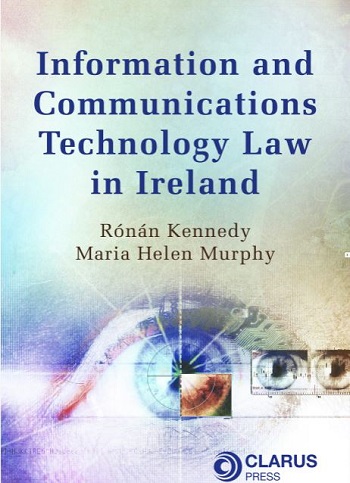
The legislature and the courts rarely respond quickly to the changes facilitated by developments and advances in new technologies which, oftentimes, raise legal questions. Long-standing legal frameworks often contain assumptions regarding means of communication and modalities of possession that do not apply to digital content. As a consequence the law surrounding ICT remains in a state of flux, with significant legal ‘grey areas’. Also, due to the location of a large number of international social media, online and network services companies in Ireland, this jurisdiction is becoming increasingly important for the development of information technology law worldwide. Information and Communications Technology Law in Ireland is designed to be an essential companion for undergraduate and postgraduate students who wish to develop their understanding of this diverse area of study.
Information and Communications Technology Law in Ireland is divided into thematic sections, with the first section contextualising the study of ICT and the law. Subsequent sections consider the private law implications of ICT (including intellectual property and online contracts); public law issues related to ICT (privacy, free speech and computer crime), and the applications of ICT in legal practice. While the topics covered are varied, the common effects of technological development on each area of law merit their consideration within a single text.
Information and Communications Technology Law in Ireland is designed to be accessible and is written with a practical style. Complex legal and technical material is explained in a logical manner in order to aid understanding. Moreover, each chapter includes a “Further Reading” section that directs the student to additional sources if they wish to explore an area in more depth.
In such a rapidly developing area of the law, it is essential to keep informed of recent developments. The text provides up-to-date information on key developing areas, including the General Data Protection Regulation, the Criminal Justice (Offences Relating to Information Systems) Act 2017, and crypto-currencies. Acknowledging that law and technology sometimes move at a different pace, the text also considers the possibilities that may come about in the near future.